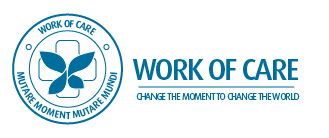A culture propagating so much physical and mental illness in people affects those who care for them as well. Many health care providers are working in a production-driven, bottom line model of care not conducive to connection, collaboration, or relationships.
Health care providers are expected to consistently provide high quality care, often for people and families experiencing crisis. Ongoing staffing shortages and Covid-19 protocols mean limited breaks, and little time to connect with coworkers or process difficult emotions.
This may be why health care professionals experience alarming rates of depression, anxiety, PTSD, drug and alcohol dependency, and burnout.
The answer: prioritizing self-care, and reframing it as a commitment to what is meaningful to you. When health care is your career, a commitment to your own well-being is essential to providing sustainable and high quality care to your patients and team.
Your patients and clients are feeling challenged by the pandemic too. Assessments can help you better understand their psychosocial needs, track symptoms, and how stress has impacted sleep, relationships and relate the importance of self-care.
